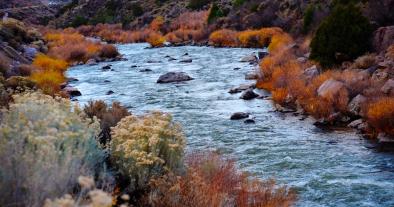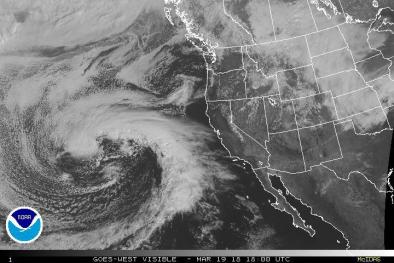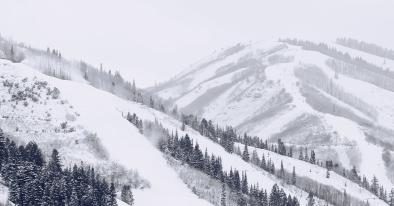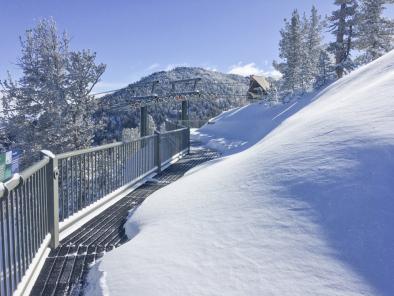California's drought may be returning
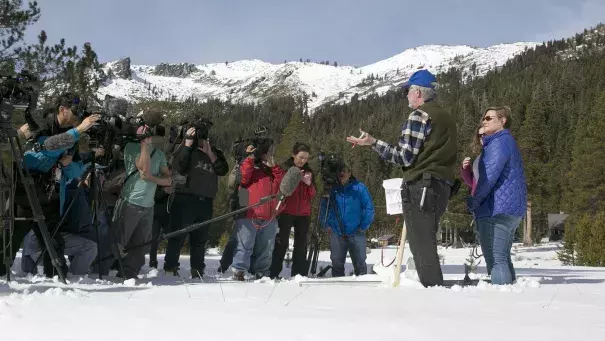
One-third of California’s water supply in summer depends on how much snow falls in the Sierra Nevada mountains in the north of the state in winter. The snowpack—a crucial measure for predicting a coming drought—is at a dire low this year.
When researchers from the state’s Department of Water Resources measured the snowpack at a research station near Lake Tahoe on Thursday, they found it be only 14% of the average for this time of year, Inside Climate News reports. Overall, the snowpack across the Sierras is at 27% of normal for February 1. That means the snowpack is “essentially tied” with the historic lows of the 2014-2015 season, which led the state into a punishing drought, according to Daniel Swain, a climate scientist at the University of California-Los Angeles, who spoke to Inside Climate. “We’re on that track” again, he said.
The state, which ended its official drought state of emergency less than a year ago, is not willing to go that far. “Some people are trying to draw a parallel to 2015, but we’re not saying a drought is on the way,” Doug Carlson, a spokesman for the water division, told Inside Climate. “We’re just saying we have disappointing snowpack readings, as well as disappointing precipitation.”
...
In Southern California, regional drought has already returned. Roughly 44% of the state is experiencing “moderate” drought conditions.
The most important snowpack reading is yet to come: April 1 typically marks the height of the snowpack in the Sierras, the period after a full winter’s worth of snowfall just before the spring melt begins. Historically, the average depth of snow at the sampling station on April 1 was 66.5 inches of snow. At the April 1 reading during the 2014-2015 season, there was literally no snow on the ground.
Related Content
